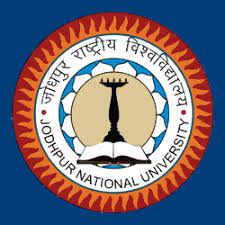The Plant Pathology Ph.D. program is designed to develop researchers who can apply basic scientific principles and broad knowledge of plant pathology to an advanced level. This degree prepares graduates for careers in plant disease research, teaching, industry, and food safety. Additionally, the Ph.D. prepares students for leadership roles in the field of plant disease. This degree can help you find a position in the biotech, pharmaceutical, or agricultural industries.
This program will provide students with in-depth training in plant pathology. The coursework will focus on applied microbial research and teach students to apply scientific methods to problem-solving situations. The coursework will cover molecular, genetic, genomic, and ecological aspects of plant diseases. During the first year of the program, new Ph.D. students will rotate through three labs to gain experience with scientific questions. After completing the first two years, they will choose a permanent lab and focus on its research. As part of the program, students are required to participate in all aspects of a research project.
Eligibility:
Candidates who want to take admission in Ph.D. must have a post-graduate degree in Plant Pathology or natural science or related field with at least 55% marks from a recognized university and must have passed the national level entrance examination or university level entrance examination. National level entrance exams like UGC NET / UGC CSIR NET / GATE / SLET or University entrance exams consist of written tests and personal interviews.
Benefits of Ph.D. Degree in Plant Pathology
There are many benefits to obtaining a Ph.D. in plant pathology. It is the most comprehensive degree in plant biology and can prepare you for leadership positions. This field is highly competitive and requires a diverse workforce. Fortunately, it is growing in popularity. With more than 100 species and dozens of diseases, plant pathology is an exciting career choice. It also has a high pay rate and is in high demand.
Having a Ph.D. in plant pathology can help you get a better job. You could become a professor at a college, work as a director for a government agency, or become a senior research scientist in an agricultural company. After completing your Ph.D., you can choose to pursue a senior research position in an agricultural firm. Regardless of where you work, you'll be able to pursue a rewarding career in plant pathology.
A Ph.D. in plant pathology can lead to a number of different positions. You could become a college professor, work as a director at a government agency, or become a senior research scientist at an agricultural firm. As part of your Ph.D., you'll complete a dissertation focusing on a specific research area in plant pathology. While this process can take several years, it's an important part of your graduate experience.
Career and future scope after Ph.D.in Plant Pathology
Graduates of a Ph.D. in Plant Pathology will be prepared for a variety of positions, including public sector work, academic research, and industry. Many departments offer tours and one-on-one introductions to leading scientists and researchers. Students may choose to work as a consultant, professor, or agronomist, or pursue a career in sales and product development.
The career prospects of a graduate in plant pathology are excellent, and they can expect to earn anywhere from tens of thousands of dollars per year to several hundred thousand. A junior research fellow in a university will earn a stipend of a minimum of ten thousand dollars, depending on the field of study. A Ph.D. in Plant Pathology will require students to pass an entrance exam, while other programs are merit-based. Regardless of which program you choose, you'll likely find a career that fits your personality and interests.
The Ph.D. program in Plant Pathology requires three years of full-time study. The program prepares graduates to pursue research in an area of expertise that relates to the agricultural or biological sciences. Depending on the program you choose, you can pursue a career in food safety, industry pursuits of crop improvement through microbiome manipulation, or academia. Whether you choose to specialize in a particular field, the career prospects for a plant pathology graduate are nearly limitless.
As a graduate, you will be trained to lead and conduct research in an area of plant disease or another field of study. Your training in plant pathology will allow you to explore the mechanisms of disease development and the development of effective treatments. You can also choose to pursue a career in food safety, or in the industry by leveraging microbiome manipulation. Alternatively, you can focus on basic microbial sciences and study the microbiome in more detail.
Among the many careers that plant pathology graduates can pursue, you will be trained to work as a professor in a university or college. As a plant pathologist, you will have an opportunity to make a difference in the lives of people in the agricultural industry. As a researcher, you will learn about plant health and disease, which is essential for sustainable agriculture.
The PHD in plant pathology degree is a doctorate-level program with a three-year duration. It will focus on the mechanisms of disease development and how to treat plants. Some of the courses you can study include weed management, irrigation, stress crop production, and genetics. As a graduate, you will be prepared for a variety of career opportunities.
Course Duration:
The Ph.D. Plant Pathology courses are a minimum of 3 years and a maximum of 5 Years duration. This depends on the university offering the course.
Course Fees:
The average fee for Ph.D. A plant Pathology degree is between INR 50000 and INR 500000.
 5 Years
5 Years
 PhD
PhD
 Research
Research


































 back
back